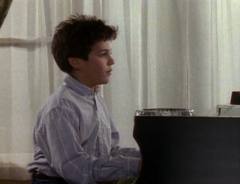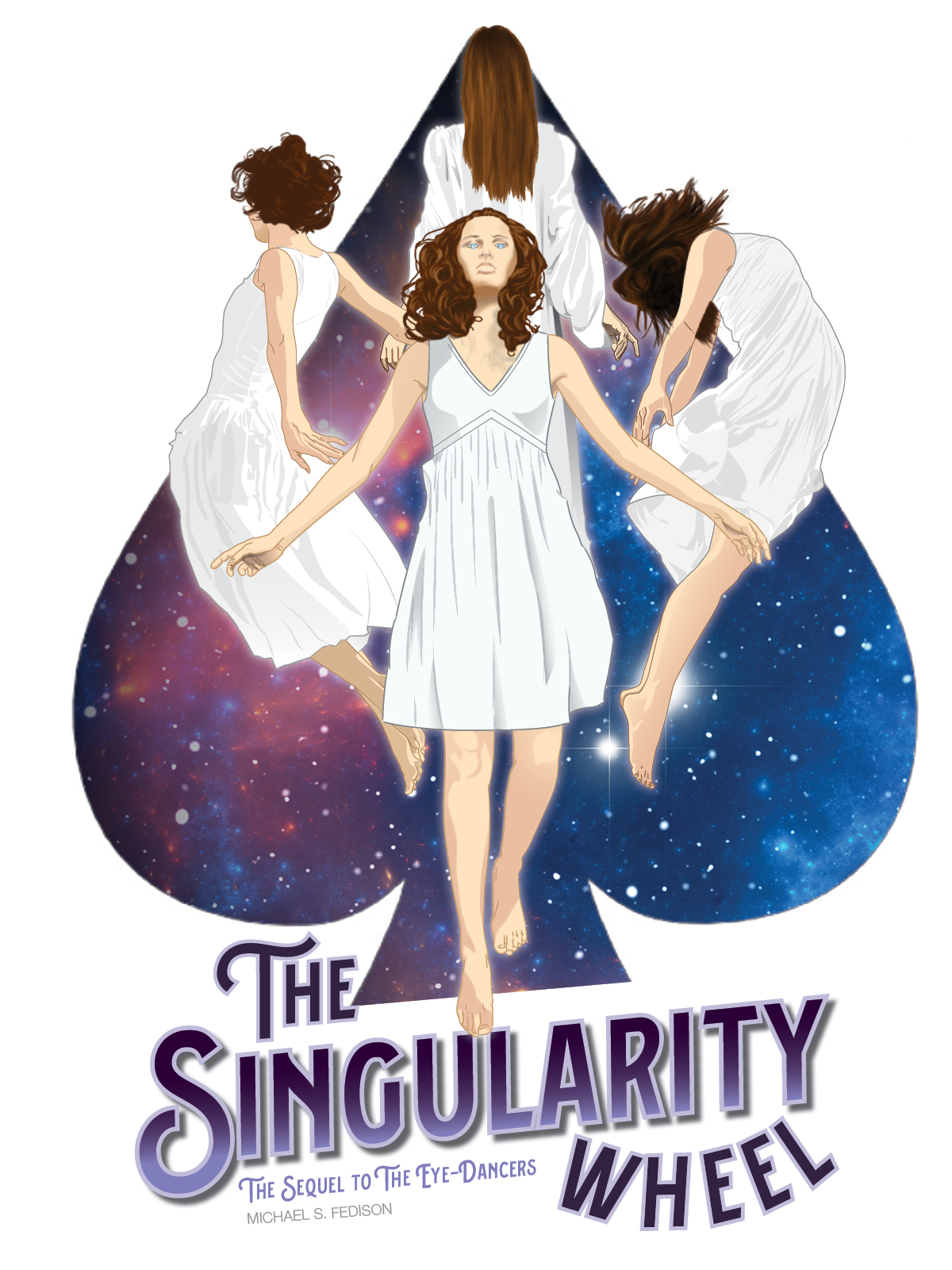Every day, every moment, we are faced with choices. Many of these choices are easy to gloss over. We’re often not even aware of making them. My morning rituals, for example, are so built in, so automatic, I don’t even consciously consider them. I just do them, as if I have a built-in program set to function in a specific, pre-defined manner each day upon waking.
That’s not how it is with everything, though, of course. Sometimes we are confronted with decisions that cause us to pause, even agonize, as we hem and haw, weighing the pros and cons. Should we, or shouldn’t we? These are the choices that define us. And, sometimes, these are the choices that cause us the most regret . . .
****************
The Wonder Years is easily one of my all-time favorite television shows. And in a second-season episode called “Coda,” the main character and narrator of the show, Kevin Arnold, reflects on a decision he made, two decades ago, that he will never forget.
The story starts with Kevin riding his bike down a neighborhood street. He comes to a stop in front of a particular house, and we peer in through the window along with him where we see a boy playing the piano, his instructor by his side, a collection of what we assume to be parents in the background. The boy is playing Pachelbel’s Canon in D major. We, and Kevin, can hear it perfectly.
The narrator, the adult Kevin discussing the scene from a perspective twenty years removed, begins this way:
“When you’re a little kid, you’re a little bit of everything–artist, scientist, athlete, scholar. Sometimes it seems like growing up is a process of giving those things up, one by one.” Here the narration pauses, and Kevin, the twelve-year-old Kevin, sitting on his bicycle in the fading light of dusk, continues to look in through the window, a wistful expression on his face.
“I guess we all have one thing we regret giving up,” the voice-over continues. “One thing we really miss, that we gave up because we were too lazy, or we couldn’t stick it out. Or because we were afraid.”
Here the scene shifts. We see a football tossed high in the air, and we realize, immediately, that time, capricious as ever, has run backward. We are viewing a moment prior to the opening scene.
Kevin and his friends are playing football in the street, pretending to be members of the New York Jets, complete with a play-by-play broadcast.
We hear the imagined cheers of a capacity crowd before Kevin’s mother steps outside to break it up. It is time for his piano lesson. . .
As Kevin arrives at his instructor’s house, the student scheduled ahead of him is finishing up his lesson. But this is no ordinary student. This is Ronald Hirschmuller.
The narrator tells us that Ronald is a “legend.” He plays everything perfectly, and practices “4700 hours a week. I hated Ronald Hirschmuller.”
After Ronald leaves, Kevin begins his practice session. When he plays for a while, making several mistakes, the instructor, a straight-talking, likeable, chain-smoking woman named Mrs. Carpose, mocks that he must have practiced all of forty-two minutes this past week. She tells him she’s going to start feeling guilty about taking his parents’ money if he doesn’t start putting more effort into his lessons.
Then she asks him if he’s thought about what he’ll play for the recital this year. The recital is the signature event of the year for Mrs. Carpose’s students–a chance for them to play in front of all the students and their parents.
But Kevin wants no part of it–he’s too busy to play at the recital. He tells her he’s in junior high now, and has a lot of demands on his time.
When Mrs. Carpose presses, prodding him to reconsider, he says, “Look, I’m not like Ronald Hirschmuller.” He has a diversity of interests, he explains. He doesn’t want to devote all his spare time to practicing piano. And he doesn’t want to play at the recital.
But when his father learns of this, he tells Kevin he has two choices. He can either quit the piano (his father doesn’t want to continue paying for lessons if Kevin isn’t practicing), or he can start to practice more and take it seriously.
Kevin tries to practice that night, but makes the same old mistakes. Frustrated, he decides to quit.
“Why?” Mrs. Carpose asks him at his next lesson when he informs her of his decision.
After avoiding the truth for a while, he comes out and tells her, “I’m not gonna be like Ronald Hirschmuller. I’m never gonna be that good. Even if I practiced all the time . . . he’s just more talented than me!”
“Oh, don’t give me that,” his teacher scolds. “You have more talent in your little pinky than Ronald Hirschmuller has in his whole body. Why that kid’s a machine! You have a feel for music, and you know it. But that’s not the point–who’s better, who’s worse. Why, that’s not music! That’s not what it’s about!”
She tells him to sit down and play Pachelbel’s Canon in D major. “My final request,” she says.
After slipping up early, Kevin gets into a rhythm and plays beautifully.
“All of a sudden, as I started to play,” the Kevin of two decades later says in a voice-over, “it was like there was electricity flowing through my veins. Suddenly I could do no wrong.”
This encourages him to reconsider and play at the recital, after all. “I would play Canon in D major like Mrs. Carpose had never heard it before,” he tells us in another voice-over. “Like the world had never heard it before. Like Ronald Hirschmuller had never heard it before.”
His optimism is shattered at the dress rehearsal, however. With all the students gathered, Kevin learns that Ronald Hirschmuller also plans on playing Canon in D major at the recital.
He is shocked, and angry at his teacher. How could she do that to him? Why would she want him to play the same piece as the best student in the class? Was she deliberately trying to humiliate him?
Ronald plays Canon in D major before the assembled students, and, of course, he is flawless, technically perfect, as always. As Ronald plays, Kevin sits there listening, growing more nervous, more anxious by the second. He wishes Ronald would make a mistake–just one slip-up. But he doesn’t.
Mrs. Carpose asks Kevin to play next, which only heightens his anxiety. How can he follow that performance? Predictably, in a state of near-panic, Kevin butchers the piece. It is a complete embarrassment, “the piano rehearsal from hell,” he tells us in a voice-over. After the last note is played, Ronald Hirschmuller smirks and offers a sarcastic applause.
Mrs. Carpose tries to encourage him. “So you choked,” she says as he leaves. “You’ll do better tomorrow night”–at the recital.
“Yeah,” Kevin says, not even making eye contact.
But tomorrow night arrives and Kevin does not attend the recital.
The final scene of the episode returns us to where it started–Kevin outside of Mrs. Carpose’s house, listening to Ronald Hirschmuller playing Canon in D major at the recital for his fellow students and their parents.
Kevin sits there on his bike, looking in. And the adult Kevin breaks in with the episode’s final voice-over . . .
“I never did forget that night. I remember the light glowing from Mrs. Carpose’s window. And I remember the darkness as I sat out there in the street looking in. And now, more than twenty years later, I still remember every note of the music that wandered out into the still night air.”
Here, he begins to ride away, looking back one last time.
“The things is,” he says, “I can’t remember how to play it anymore.”
********************
The ever-present specter of peer pressure, which influences Kevin so profoundly in this episode, is something that also deeply affects the main characters in The Eye-Dancers. Indeed, at its heart, the novel is about the characters being forced to confront that same pressure, those external expectations, and learning to overcome the burdens they create.
I suppose all of us have had to struggle with those burdens at one point or another. I suppose many of us still do. I know I do.
My outlet for as long as I can remember, my expression of these struggles, has always been to write them out and share them on the page.
Thank you so much for reading them.
–Mike










































Jun 28, 2014 @ 02:00:53
Great post! This is so relatable. In my adult years I have looked back quite a few times disappointed that I gave up on certain things I used to be so good at when I was young. When I started blogging it was such an amazing feeling to be getting back to writing. I didn’t even realize how much I missed it until I started doing it again!
Even though I started out hesitantly and it was all very roughly done, after a few months I saw the progression. As a child I was always so much better at expressing myself through the written word, and I see that still to be true in my writing sometimes now. Please keep expressing yourself! I love this post, very well done 🙂
Jun 30, 2014 @ 19:48:50
Thanks so much for your comments and very insightful thoughts! You’re very right about creativity and childhood–that, actually, will be a focus of my next post! Very glad you enjoyed this!
Jun 28, 2014 @ 02:22:26
Our choices today shape our future tomorrow. I’ve made a lot of wrong choices that have brought me to this moment in time. I’ve found it best to simply acknowledge my wrong choices, accept that I’m not perfect, and move forward. Hopefully, stronger and wiser.
Jun 30, 2014 @ 19:49:27
That’s a wonderful outlook to have!
Jun 28, 2014 @ 02:42:45
Years ago, while struggling with this same issue, a friend told me, “there will always be someone who can play better than you, and there will always be someone who plays worse.
Jun 30, 2014 @ 19:49:51
Very wise advice.:)
Jun 28, 2014 @ 10:52:05
I could hear every word in Kevin’s voice. Thanks for writing this, Mike, it was a great show.
Jun 30, 2014 @ 19:50:39
Thanks, Lyn! And yes, The Wonder Years was one of the very best shows in television history, I think.:)
Jun 28, 2014 @ 11:42:00
I love the picture of the peer pressure leaves. Do we all conform eventually? It’s something to ponder.
Jun 30, 2014 @ 19:51:07
It certainly is, but I hope we don’t.:)
Jun 28, 2014 @ 16:29:04
So true, that we’re often unaware of our choices. Nice work again, Mike.
Jun 30, 2014 @ 19:51:42
Thanks so much, Teagan! Always a pleasure hearing from you.:)
Jun 29, 2014 @ 14:14:00
Very poignant post Mike. If only we knew then what we know now, but in some ways, to find something later in life and begin again, when we can appreciate it more, is so much sweeter. I gave up art when it became too much like work in school, lost all its enjoyment, but I found it again a couple of years ago and now I appreciate it more than I ever did.
Jun 30, 2014 @ 19:53:25
That’s a very good point–and I suppose if we hadn’t once given something up, we might not then appreciate it again so much later, when we rediscover it. I hadn’t actually thought about it in quite this way before, but it makes a lot of sense!
Jun 30, 2014 @ 12:05:48
so relatable, thank you, LMA
Jun 30, 2014 @ 19:53:48
Thank YOU for reading!
Jun 30, 2014 @ 18:28:01
I do love reading your work! 🙂 You do a great job!
Jun 30, 2014 @ 19:54:14
Thanks, Abby! That is very nice to hear.:)
Jun 30, 2014 @ 19:13:24
I don’t expect I’ll be picking up the accordion or the guitar any time soon again, but this writing thing is something I’m so happy I’m revisiting. Thanks Mike for helping me to see that again…
Jun 30, 2014 @ 19:54:47
Thank you! And you’re welcome.:)
Jul 01, 2014 @ 00:01:08
“My outlet for as long as I can remember, my expression of these struggles, has always been to write them out and share them on the page.”
I like this sentence very much, because it makes all of us writers part of a community of people who choose the same channel to go on with the difficulties of life, the choices we face and the decisions we must take. Thank you, Mike.
Jul 02, 2014 @ 19:27:39
Thanks so much, Evelyne! Those are very kind words, and mean a lot!
Jul 01, 2014 @ 00:20:16
I’ve had a tendency throughout life to, A. Make heaps of mistakes and B. Take on different activities and stop when I’ve mastered them and move onto something else. The good thing is I eventually learned from the mistakes. 🙂
Jul 02, 2014 @ 19:28:50
That is a good thing! And of course any and all mistakes are grist for the writer’s mill–so many of my stories and characters stem from mistakes I’ve made . . .
Jul 03, 2014 @ 02:16:16
Life’s mistakes certainly are a gold mine of ideas for a writer Michael.
Jul 03, 2014 @ 02:33:16
What a waste of talent. On the other hand, it is not too late to pick it up something one is passionate about later in life.
Jul 03, 2014 @ 15:46:52
That is very true–it is never too late!
Jul 04, 2014 @ 09:39:05
Have a very inspiring 4th of July and keep on the great writing !
Jul 04, 2014 @ 17:51:27
Thank you very much! Great hearing from you!
Jul 06, 2014 @ 21:21:51
I read this via my phone the other day when you posted this.. I couldnt see the pictures.. but I thought it seemed familiar… Now I have viewed I don’t think I saw the series.. as I live in the UK.. but the story sounds like a film I once saw… either that or I Dreamt it.. LOL… thank you for sharing..
Choices are always there…. WE just have to choose…
Blessings Sue
Jul 10, 2014 @ 14:44:15
Thanks, Sue! And if you ever do get a chance to see any episodes of The Wonder Years, I cannot recommend the show highly enough. It’s one of the best!
Jul 14, 2014 @ 14:50:30
Thank you Mike.. Hope you enjoyed your weekend too
Jul 23, 2014 @ 17:51:41
Beautifully written, Mike. It is always a pleasure to read your words. You are so talented. You make the reader feel your words. That is a difficult thing to do.
How is book 2 coming?
Jul 24, 2014 @ 18:18:16
Hi Janice! As always, I so much appreciate your support.:) Book 2 is coming along, albeit kind of slowly.:( Historically, though, late summer into early fall has always been a creative season for me, so I am hoping to make more progress in the next month or so!